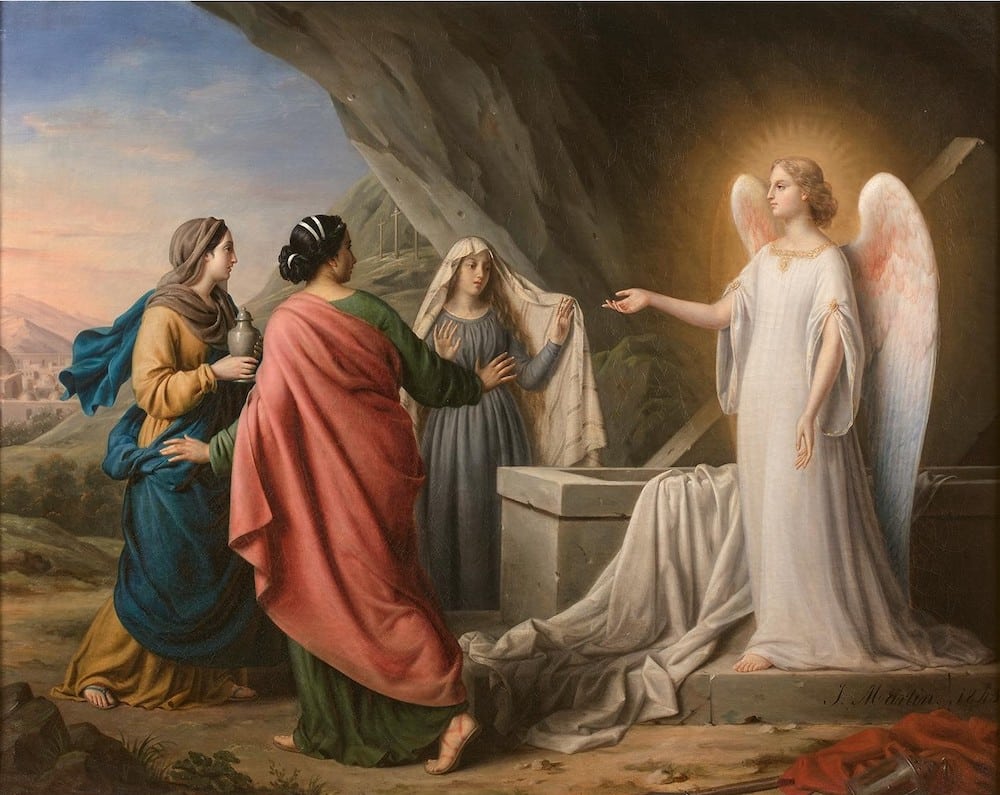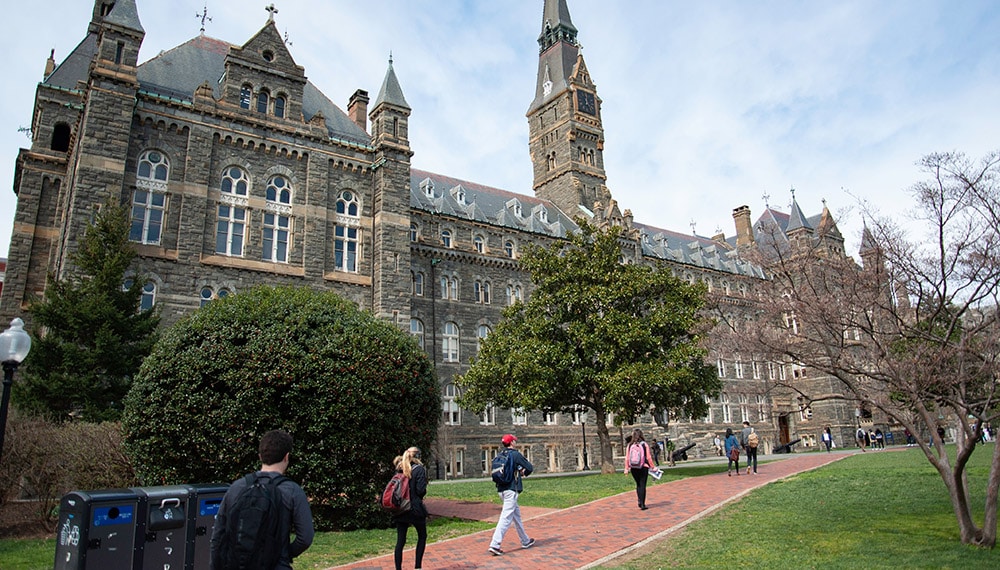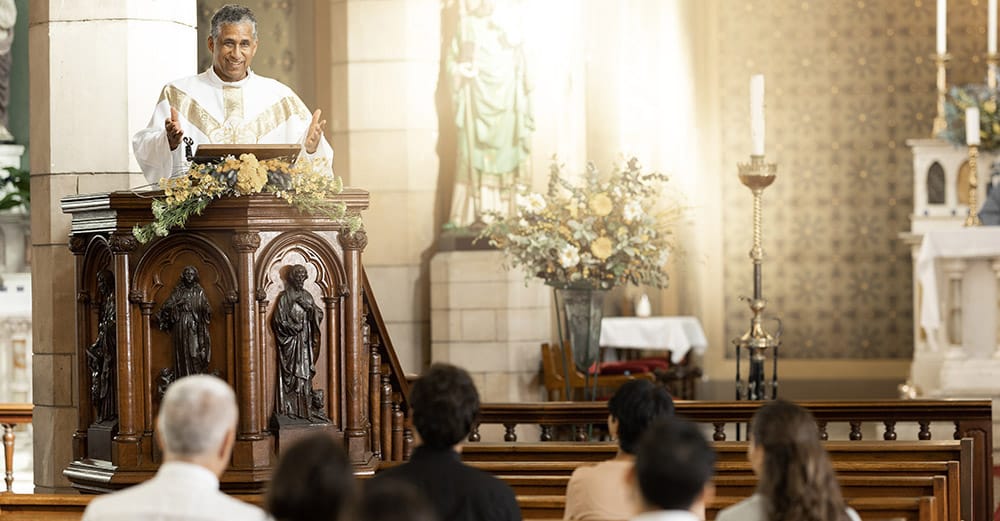In my last column, I considered how some events from Holy Week convey lessons to Christians about how we might think about the political implications of our faith. Through some of Jesus’ words and scenes from the Gospels, I suggested that Jesus inaugurates a universal and transcendent kingdom that calls his followers to order our public lives by humility and service. In this column, I examine some key events from the Easter Triduum that give us further information about the implications of Easter for our political lives.
Of course, to emphasize the political meaning of Holy Week and Easter is not to diminish the central purpose of the death and resurrection of Christ — namely, to reconcile fallen, sinful humanity to the Father. Easter is the event of our salvation. But while we must not reduce Easter (or Christianity in general) to a political ideology, neither should we ignore the political implications of the events of Easter. As subjects in the City of God, we are still citizens of this earthly city (to use St. Augustine’s terms), and thus our redemption has necessary political implications. While we are dual citizens, the law of the kingdom of Christ has prior claims upon us than those of the earthly city. Where those claims conflict, we must order our lives by Christ’s kingdom. Easter shows us how the transcendent and universal kingdom of Holy Week continues as the triumphant and eternal kingdom of Easter, ordered by reconciliation and forgiveness.
Jesus’ triumphant death
We are generally familiar with the scenes from the Gospels in which Jesus is interrogated by Pilate. At the end of the trial, Pilate declares that Jesus has committed no crime against the empire. Treating him as more a religious fanatic than a political revolutionary, Pilate wanted to release Jesus and go about his other business. While it is easy to condemn Pilate for his role in this sham trial, Pilate’s eventual verdict was pressured by the mob rather than demanded by the requirements of justice. This does not excuse him, of course; perhaps this is a worse judgment on him. The point is, however, that Pilate’s eventual condemnation of Jesus was more to rid himself of a nuisance than to convict Jesus of a crime. Even after Jesus declared himself to be a king, Pilate told the crowd, “I find no guilt in him.”
Paradoxically, Pilate should have found Jesus guilty of sedition because Jesus was subversive. But because Jesus explained that his “kingdom was not of this world” and that he would not resist being handed over, Pilate saw no reason to take the claim seriously. Pilate did not deem Jesus to be a threat to the rule of the Roman Empire. Instead, he dismissed Jesus as an inconsequential — but increasingly noisome — interruption to the start of the weekend. This was Pilate’s crucial mistake. He did not understand that the reason Jesus wasn’t interested in overthrowing the particular Roman Empire was because Jesus came to subvert all rival politics to the politics of the kingdom of heaven.
Consequently, what Pilate considered the solution to his little Friday morning problem — casually handing Jesus over to be crucified — led to the triumphant and eternal kingdom of God. When Christ rose from the dead, he declared that all politics are subordinated to his reign. Jesus’ crucifixion by one temporal ruler led to the triumphant resurrection against all rival politics. And because Jesus overcame death to establish this kingdom, the kingdom itself will have no end. Pilate saved political order for a day; but he set in motion the upheaval of all politics forever. Temporal earthly politics is subordinated to the everlasting kingdom of heaven.
A kingdom of reconciliation
In the same paradoxical way that the kingdom is inaugurated by the death of the King, this is a kingdom that makes radical, paradoxical demands upon its citizens. These are illustrated by the words and actions of Jesus himself. Jesus died for the benefit of the very people who put him to death. Lest there be any confusion about that, among his last words were, “Father forgive them.” As Jesus interceded for the forgiveness of those who killed him, he shows us that his is a kingdom of reconciliation. Again, we understand that this reconciliation is not primarily understood in political terms. Jesus reconciles us to the Father by the redemption from our sins. But in doing so, he establishes the law of reconciliation in his kingdom. Thus, the politics of the Christian are ordered toward reconciliation, not vengeance.
This impulse to reconciliation is perfectly illustrated in the post-resurrection account at the tomb as recorded in the Gospel of St. Mark. When the two Marys and Salome came to the empty tomb, they were greeted by a somewhat mysterious man who explained to them that Jesus had risen from the dead. Then he said, “Go and tell his disciples and Peter, ‘He is going before you to Galilee; there you will see him, as he told you'” (Mk 16:7). In light of the abandonment of the disciples two days earlier and, especially, Peter’s denial that he even knew Jesus, this is a remarkable passage. The young man speaking on behalf of the resurrected Christ immediately extends a message of reconciliation to his fickle, inconstant, fearful followers. And he continues to extend that message to the heirs of those followers — namely, us. This is a proactive invitation to reconciliation even to those who seem least to deserve it. Thus does St. Mark establish our mandate to do the same. As he has reconciled us to himself, so we are called to reconcile others. We express our citizenship in this kingdom of forgiveness by being reconciled to others, all in the name of the King who we serve.
Much more can be said about the events of Holy Week and the Easter Triduum than I have considered here. But these brief considerations suggest that our citizenship in the kingdom of heaven is exemplified by the very events that create that kingdom. Our universal, triumphant, eternal politics transcend the politics of the earthly city. And they are a politics of reconciliation and forgiveness. The measure of our commitment is not in ruling but rather in giving ourselves over for the good of the other, even — perhaps especially — those who have offended us.
Kenneth Craycraft is a columnist for Our Sunday Visitor and an associate professor of moral theology at Mount St. Mary’s Seminary and School of Theology in Cincinnati. Follow him on Twitter @krcraycraft.







